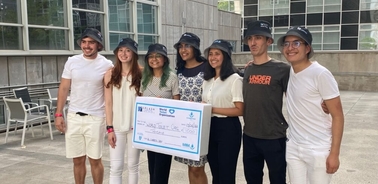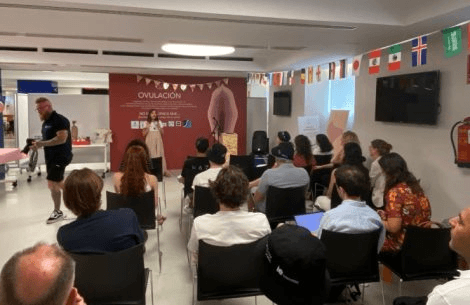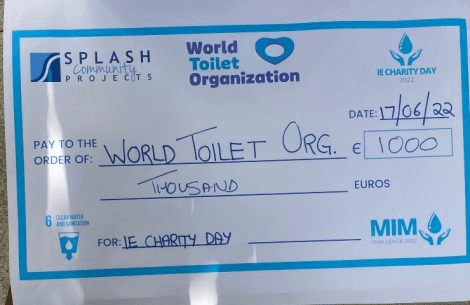- Home
- News And Events
- What’s Going On
- The Mim Challenge Creates Awareness About Sdg6
The MIM Challenge Creates Awareness about SDG6

11th edition of the MIM Challenge has students collaborate with Splash Projects to spread awareness on menstrual health and sustainable sanitary products.
Master in Management students from IE Business School in collaboration with Splash Projects held the MIM Challenge during the IE Charity Day, to educate the campus on women’s menstrual health and sustainable sanitary products, while raising funds for the World Toilet Organization.
“MIM Challenge is a challenge towards yourself, and this year, it is a very personal topic. Before you can advise sustainability and hygiene, you need to create a safe space for women around you to talk about it and then you can go beyond campus and talk to women in developing countries about sanitary options. But, for that to happen, we have to kill the taboo.”
Hasmitha Rangaswami, MIM Challenge leadership ambassador
The 11th edition of the MIM Challenge was organized by a team of seven students, known as leadership ambassadors, around the UN Sustainable Development Goal 6, Sanitation and Water, with the focus on women’s menstrual health.
Students said they were inspired by Jack Sim, the founder of the World Toilet Organization and their mentor, to tackle this issue specifically. “We realized that as a society we have come a long way when we converse and take actions related to menstruation. Yet the menstrual hygiene and sustainability aspect of using the menstrual product is an issue that impacts not only developing countries but also developed societies,” added Radhika Bhatia, a leadership ambassador.
The work of six months culminated in the IE Charity Day where students broke the taboo on menstruation. Paloma Alma, founder of Cyclo Sustainable Menstruation, gave a talk about the importance of reconciling society with women’s periods and normalizing such a dialogue in the professional world. She also instructed the students about the different sustainable sanitary products available to women.
The MIM Challenge included a photography contest around womanhood and women’s hygiene. Martina Andreoli, a student at IE University, won the first prize with a picture she called “the abstract art of being a woman”.
“Menstruation can be a big part of being a woman for some. It is important to shed light on this topic since in many cultures, countries and institutions it is still seen as a taboo,” Andreoli further explained.
Additionally, Melanie Chinchayan Diaz, one of the leadership ambassadors, held a sustainable pads workshop where students made their own sanitary pads. She reminded the participants that an estimated 500 million menstruating women lack access to sanitary products and hygiene facilities, thus, the importance of this initiative. Some participants said the process very hard, but the MIM leadership ambassadors said they reached their objective of raising awareness about sustainable menstrual products.
Organizers called the event a success as it raised €1,000 for the World Toilet Organization, a global non-profit committed to improving toilet and sanitation conditions worldwide.

